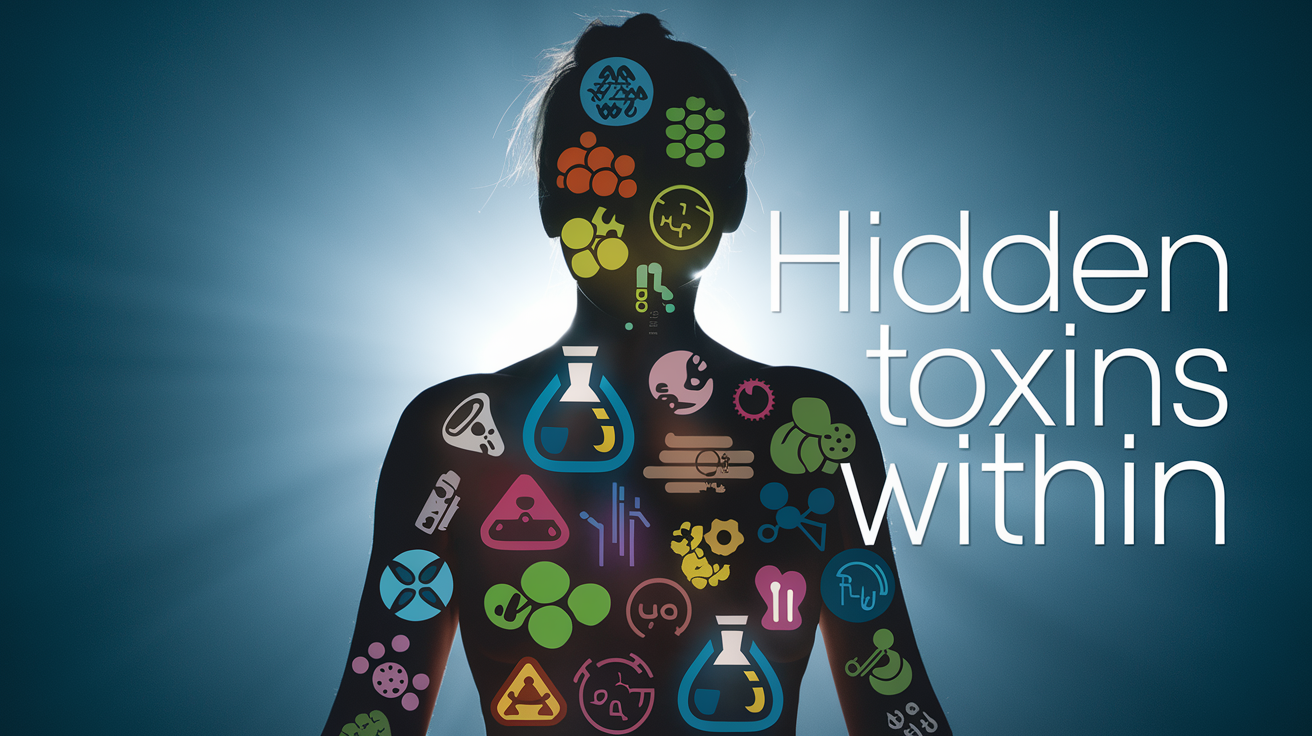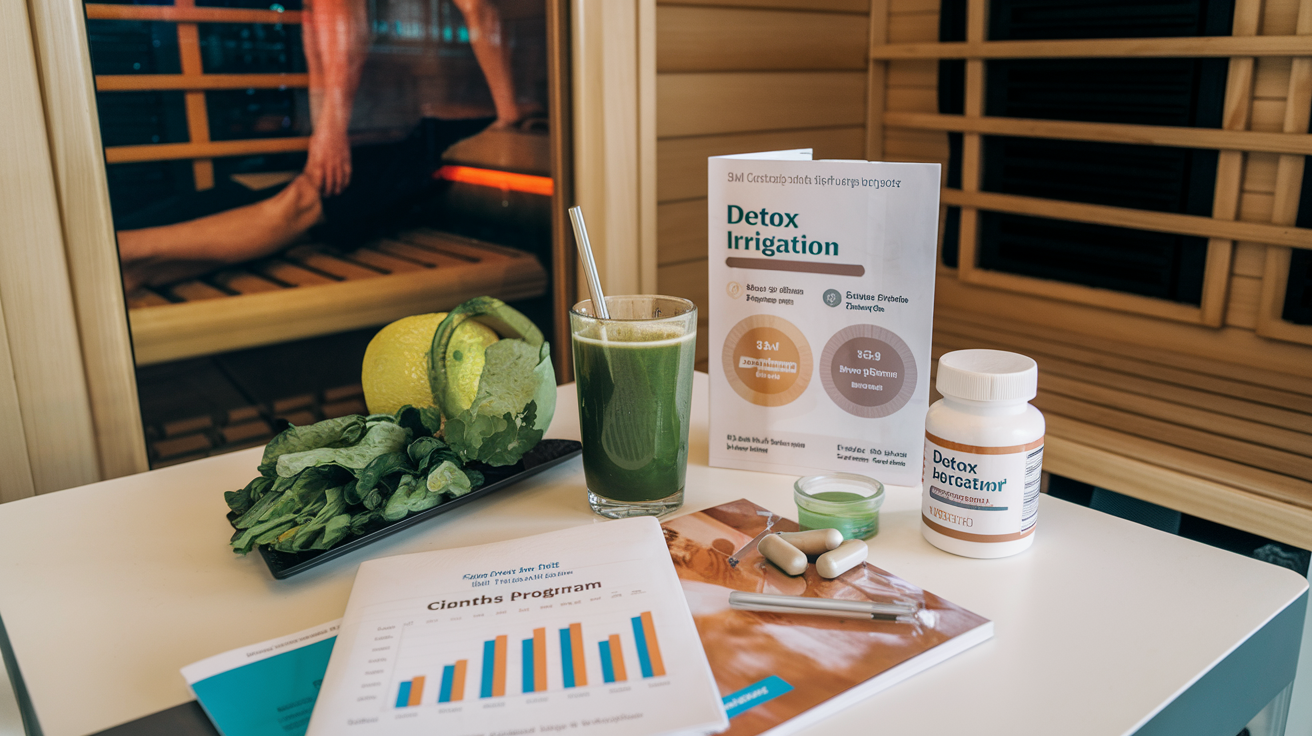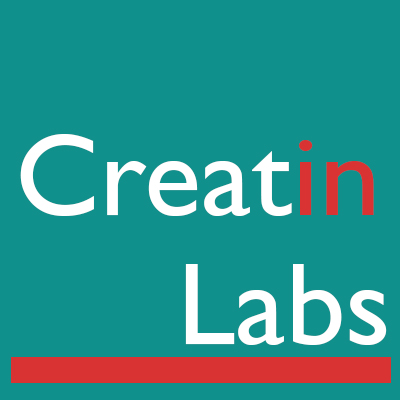
10 Shocking Toxins Hiding in Your Body Right Now!
Ever felt sluggish, foggy-headed, or just “off” despite your best efforts to stay healthy? You’re not alone. In today’s world, our bodies are constantly bombarded with invisible invaders that could be sabotaging your health from within. From the food we eat to the air we breathe, toxins have become unwelcome passengers in our daily lives—silently accumulating in our systems while we remain blissfully unaware of their presence.
The promise of “detoxification” has exploded into a multi-billion dollar industry, with juice cleanses, detox teas, and wellness programs claiming to flush these harmful substances from your body. But what’s the real truth behind these claims? 🤔 While many swear by the energy boost and weight loss benefits of these regimens, scientific evidence remains limited and sometimes contradictory. The good news? Your body already has sophisticated systems in place to handle toxins—but understanding how to support these natural processes could be the key to reclaiming your vitality. In this comprehensive guide, we’ll separate detox fact from fiction, evaluate popular programs, and reveal sustainable approaches to supporting your body’s innate cleansing abilities without falling prey to potentially dangerous fads.
Understanding Detox: Separating Fact from Fiction

Understanding Detox: Separating Fact from Fiction
Defining Detox Diets and Cleanses and How They Differ
The concept of “detox” has evolved significantly over time. Originally, detoxification referred to a medical procedure conducted in hospitals to remove dangerous substances from the body under professional care. Today, however, the term encompasses a wide range of do-it-yourself methods marketed to the general public, from detox diets to cleansing kits.
Detox diets, like the popular Master Cleanse, typically involve extreme caloric restriction and are often promoted by celebrities. These programs generally focus on dietary changes, sometimes eliminating entire food groups or relying on specific juices or liquids. In contrast, cleanses tend to target specific body systems—particularly the intestinal tract—using products designed to “flush out” accumulated waste and parasites.
Common Claims About Detox Benefits Versus Scientific Evidence
Proponents of detox programs make numerous claims, including:
- Elimination of “toxins” linked to headaches and fatigue
- Long-term weight loss
- Improved energy and mental clarity
- Enhanced immune function
- Removal of parasites and waste buildup
However, scientific evidence supporting these claims is notably lacking. Research shows that detox diets often lead to rapid weight regain once normal eating resumes. Moreover, these approaches can create potential health risks including nutrient deficiencies and metabolic disruptions.
Products like foot detox pads and ionic baths claim to extract toxins, but studies indicate that observed color changes are likely due to non-toxic chemical reactions rather than actual detoxification. Similarly, oxygen detox methods lack scientific validation, as healthy individuals already receive sufficient oxygen from the atmosphere.
How the Body Naturally Detoxifies Itself
What many detox marketers fail to acknowledge is that the human body possesses sophisticated natural detoxification systems that function efficiently without external intervention. These include:
- Skin: Eliminates toxins through sweat
- Respiratory system: Filters air and expels toxins
- Immune system: Identifies and neutralizes harmful substances
- Intestines: Process and eliminate waste materials
- Liver: The primary detoxification organ that filters blood and processes toxins
- Kidneys: Filter waste from blood and excrete it through urine
For most healthy individuals, these systems work remarkably well without specialized detox products. Rather than pursuing trendy detox regimens, evidence suggests that supporting natural detoxification through nutrient-dense diets, proper hydration, regular exercise, adequate sleep, and minimizing exposure to environmental toxins is far more effective.
Now that we understand how detoxification truly works in the body and have separated marketing hype from scientific reality, let’s examine some of the most popular detox programs on the market and evaluate their effectiveness in our next section, “Popular Detox Programs and Their Effectiveness.”
Popular Detox Programs and Their Effectiveness

Popular Detox Programs and Their Effectiveness
Now that we’ve separated fact from fiction regarding detoxification, let’s examine some popular detox programs and evaluate their actual effectiveness based on scientific evidence. Similar to rehabilitation programs for substance use disorders, detox programs vary widely in their approaches and results, with success rates often difficult to measure objectively.
Juice Cleanses and Their Short-Term Versus Long-Term Results
Juice cleanses represent one of the most common detoxification methods, but their effectiveness mirrors patterns seen in traditional rehabilitation programs. While participants may experience short-term weight loss and increased energy—similar to the initial positive outcomes observed in inpatient detox programs—the long-term benefits remain questionable. Studies suggest that, like addiction treatment where 40-60% of individuals experience relapse, most juice cleanse participants return to baseline within weeks after completing the program.
Research indicates that juice cleanses may provide temporary relief from digestive issues, but they lack substantial evidence for sustained toxin removal. This parallels findings from rehabilitation studies where initial success often diminishes over time without proper follow-up care and lifestyle modifications.
Green Tea Detoxes and Their Actual Health Benefits
Green tea detoxes have gained popularity as a natural detoxification method, with proponents claiming they help eliminate toxins from the body. Similar to outpatient treatment approaches for substance use disorders, green tea detoxes are less disruptive to daily life while still offering potential benefits.
Evidence suggests that green tea contains catechins and antioxidants that support liver function—the body’s primary detoxification organ. However, just as research on spontaneous recovery from substance use remains inconclusive, the direct detoxifying effects of green tea require further investigation. The benefits likely stem more from overall improved hydration and the replacement of less healthy beverages rather than specific “detoxifying” properties.
Detox Waters and Their Role in Hydration
Detox waters—infused with fruits, vegetables, and herbs—claim to flush toxins from the body. Their effectiveness mirrors aspects of individualized treatment plans recommended for substance use disorders. While these flavored waters can improve hydration, which is essential for natural bodily functions including elimination, their specific detoxifying abilities lack substantial scientific backing.
Similar to how the British Columbia Ministry of Health recommends personalized approaches to treatment, hydration needs vary by individual. Detox waters may encourage people to drink more fluids, supporting the body’s natural detoxification systems like the kidneys and liver, but they don’t necessarily remove toxins more effectively than plain water.
With these popular detox programs and their limitations in mind, next, we’ll explore the potential benefits that certain evidence-based detoxification approaches might offer, particularly for those managing chronic conditions.
Potential Benefits of Detox Approaches

Potential Benefits of Detox Approaches
Now that we’ve explored various popular detox programs and their effectiveness, let’s examine some potential benefits these approaches might offer. While the scientific evidence supporting detox diets is limited, and our bodies naturally filter toxins through organs like the liver and kidneys, some people report positive outcomes from structured detox programs.
Boosting Vitamin and Nutrient Intake
One notable benefit of many detox approaches is the increased consumption of nutrient-dense foods. Many detox diets emphasize:
- Fresh vegetables and fruits rich in essential vitamins
- Natural juices packed with antioxidants
- Herbal teas containing beneficial compounds
- Whole foods over processed alternatives
This shift toward nutrient-dense options can significantly increase vitamin and mineral intake compared to typical Western diets high in processed foods. A nutrient-dense diet naturally supports the body’s own detoxification systems, providing the raw materials needed for optimal function of organs like the liver and kidneys.
Identifying Food Sensitivities Through Elimination
Detox diets often involve removing common allergens and inflammatory foods, including:
- Refined sugars
- Alcohol
- Meat products
- Dairy
- Gluten
This elimination approach can serve as a valuable diagnostic tool. By removing potential trigger foods and then systematically reintroducing them, individuals may identify previously unrecognized food sensitivities. Many people report improvements in digestive symptoms, energy levels, and skin conditions when problematic foods are identified and eliminated from their diet.
Jumpstarting Healthier Eating Habits
Perhaps one of the most practical benefits of a structured detox program is its ability to reset unhealthy eating patterns:
- Breaking cycles of sugar dependency and processed food consumption
- Establishing new routines around meal preparation
- Developing a taste for natural, unprocessed foods
- Creating awareness about food choices and their impacts
Many individuals report that after completing a detox program, they naturally gravitate toward healthier food choices. The temporary nature of detox diets can provide a psychological fresh start, making it easier to implement lasting dietary improvements.
With these potential benefits in mind, next we’ll explore the important risks and limitations to consider before embarking on any detox program. While certain approaches may offer these advantages, it’s crucial to understand the potential downsides and determine if a detox is appropriate for your individual health circumstances.
Risks and Limitations to Consider

Risks and Limitations to Consider
Now that we’ve explored the potential benefits of various detox approaches, it’s crucial to understand the significant risks and limitations these programs may present. While proponents claim numerous health advantages, the scientific evidence suggests several concerns that should not be overlooked.
A. Nutrient deficiencies and energy depletion concerns
Most detox diets involve severe caloric restriction, which can lead to significant health complications. These restrictive regimens often cause immediate feelings of hunger, fatigue, and irritability as your body struggles with inadequate energy intake. More concerning is the development of nutrient deficiencies that can occur even after short periods on these programs.
The rapid weight loss experienced during detox diets primarily comes from water loss and muscle mass depletion—not actual fat reduction. This loss of muscle tissue can slow metabolism, making weight maintenance more difficult once the detox ends. Furthermore, prolonged nutrient deficiencies may result in more serious conditions like anemia and weakened bone structure, undermining the very health goals these programs claim to support.
B. Gastrointestinal distress from laxative effects
Many detox programs incorporate laxatives or have laxative-like effects on the digestive system. While temporary intestinal cleansing might seem beneficial, these effects can lead to severe health complications. The excessive use of laxatives in detox regimens can cause:
- Dangerous dehydration
- Electrolyte imbalances that affect heart function
- Disruption of normal bowel function
- Dependency on laxatives for regular bowel movements
Additionally, some juice-based detoxes contain high levels of oxalates, compounds that in excessive amounts can contribute to kidney failure in susceptible individuals. The risk increases significantly when these juices replace regular meals for extended periods.
C. Safety issues with unregulated detox products
Perhaps one of the most concerning aspects of modern detoxification programs is the lack of regulatory oversight. Many detox products on the market are not FDA-regulated, raising serious questions about their ingredient quality and safety. Without proper regulation:
- Products may contain harmful ingredients not listed on labels
- Dosages may be inconsistent or inappropriate
- Claims about effectiveness remain unverified
- Potential interactions with medications go unaddressed
The financial cost also deserves consideration, with many detox programs ranging from $50 to $500—a significant investment for interventions that lack substantial scientific support. These unregulated products may promise dramatic results but deliver little beyond placebo effects while potentially introducing new health risks.
With these significant risks in mind, our next section will explore safer “Detox Alternatives for Chronic Condition Management” that support rather than override your body’s natural detoxification processes. These approaches focus on evidence-based methods to enhance your body’s inherent ability to eliminate harmful substances without the dangers associated with extreme detox programs.
Detox Alternatives for Chronic Condition Management

Detox Alternatives for Chronic Condition Management
Now that we’ve examined the risks and limitations of conventional detox programs, let’s explore more sustainable alternatives specifically designed for individuals managing chronic conditions. While extreme detox approaches can pose challenges, there are evidence-based strategies that support the body’s natural detoxification processes while addressing specific health concerns.
Condition-specific dietary approaches for digestive disorders
For those with chronic digestive disorders, supporting natural detoxification requires a tailored approach rather than one-size-fits-all detox programs. Naturopathic medicine offers valuable insights by emphasizing holistic care that treats the whole person rather than just symptoms. This approach focuses on:
- Eliminating processed foods, sugar, and alcohol that can exacerbate digestive issues
- Incorporating sulfur-rich foods that support liver function
- Fostering a healthy gut environment with probiotics and prebiotics
- Emphasizing whole foods like fruits, vegetables, and lean proteins
These dietary modifications work with the body’s inherent detoxification processes while addressing the root causes of digestive disorders. Unlike extreme detox diets, these approaches can be maintained long-term and integrated with conventional medical treatments when necessary.
Nutrition strategies for managing conditions like diabetes and kidney disease
Chronic conditions such as diabetes and kidney disease require special consideration when supporting detoxification. Oriental medicine has demonstrated efficacy in managing these conditions while offering a better safety profile than some pharmaceuticals. Key nutrition strategies include:
- Focusing on stable blood sugar through balanced macronutrients
- Maintaining proper hydration to support kidney filtration
- Selecting foods that reduce inflammation and oxidative stress
- Incorporating botanical medicines with evidence-based benefits
The kidneys play a crucial role in filtering toxins from the body, making proper hydration essential for those with kidney conditions. Similarly, individuals with diabetes benefit from nutrition approaches that support liver function without causing blood sugar fluctuations.
Mental wellness considerations when changing diet patterns
Changing dietary patterns to support detoxification can significantly impact mental health, an aspect often overlooked in conventional detox programs. When implementing dietary changes for chronic condition management, consider:
- Managing stress through relaxation techniques, as stress can impair natural detoxification
- Ensuring adequate sleep for cellular repair and toxin processing
- Incorporating regular physical activity to improve circulation and enhance mood
- Adopting gradual dietary changes rather than extreme restrictions
Mental wellness and physical detoxification are interconnected—massage therapy has shown effectiveness not only in alleviating chronic pain but also in improving quality of life for those with conditions like cancer and fibromyalgia.
With this foundation of condition-specific approaches, our next section will explore how to create a sustainable approach to detoxification that can be maintained long-term, ensuring continuous support for your body’s natural cleansing processes without the pitfalls of extreme detox programs.
Creating a Sustainable Approach to Detoxification

Creating a Sustainable Approach to Detoxification
Now that we’ve explored detox alternatives for chronic condition management, it’s time to focus on creating a sustainable approach to detoxification—one that supports your body’s natural processes rather than relying on extreme measures or quick fixes.
Balanced Nutrition Strategies That Support Natural Detoxification
Hydration stands as the cornerstone of any effective detoxification strategy. Water comprises 50-75% of the human body and plays a crucial role in supporting kidney function by aiding waste filtration and enhancing liver function through toxin metabolism and elimination. Aim for 8-10 glasses daily, especially when exercising or in hot climates.
A diet rich in whole foods provides essential nutrients that support your body’s natural detoxification systems:
- Fiber-rich foods: Consume 25 grams (women) to 38 grams (men) of fiber daily through fruits, vegetables, legumes, whole grains, and nuts to bind toxins for elimination
- Antioxidant-dense options: Include colorful fruits, vegetables, whole grains, nuts, and seeds to combat free radicals that cause cell damage
- Specific detoxifying foods: Incorporate foods known for their liver-supporting properties like cruciferous vegetables, berries, and citrus fruits
Minimize processed foods high in sugar, salt, and unhealthy fats, as these can burden your detoxification systems. Instead, choose organic options when possible to reduce exposure to pesticides and other environmental toxins.
Lifestyle Factors That Enhance the Body’s Cleansing Processes
Several lifestyle practices significantly support your body’s natural detoxification abilities:
- Regular exercise: Engage in at least 30 minutes of moderate activity most days to enhance detoxification through sweating and improved circulation
- Sweating practices: Consider saunas or other heat therapies that facilitate toxin elimination through the skin
- Proper sleep: Prioritize 7-9 hours of quality sleep nightly, as sleep is essential for cell repair and immune system function
- Stress management: Practice meditation, deep breathing exercises, or journaling to reduce chronic stress, which can exacerbate health issues
- Environmental awareness: Use filtered water, natural cleaning products, and reduce exposure to environmental pollutants
Additional supportive practices include:
- Dry brushing to improve circulation and lymphatic drainage
- Massage therapy for enhanced lymphatic flow
- Deep breathing exercises to increase oxygenation
Building a Community Support System for Healthy Habits
Sustainable detoxification isn’t just about individual actions—it thrives within a supportive community environment. Consider:
- Joining groups focused on healthy eating and lifestyle practices
- Sharing resources and knowledge about natural detoxification methods
- Participating in group activities that promote sweating and movement
- Creating accountability partnerships for maintaining hydration and nutrition goals
Remember that detoxification should be a gentle, gradual process. Listen to your body’s signals and consult healthcare professionals before embarking on any significant changes to your routine. The most effective approach is one that incorporates sustainable lifestyle changes rather than extreme “detox” programs or cleanses.
By implementing these balanced nutrition strategies, supportive lifestyle factors, and community connections, you can create a sustainable approach to detoxification that supports your body’s natural cleansing processes for long-term health and wellness.

As we’ve explored throughout this article, the concept of “toxins” and detoxification is often surrounded by more marketing than science. While many detox programs promise miraculous results, our bodies are already equipped with sophisticated detoxification systems through our liver, kidneys, and digestive tract. Understanding this natural process helps us make more informed decisions about our health beyond trendy cleanses or detox products.
Rather than pursuing extreme detox regimens that may lead to nutrient deficiencies, energy depletion, or gastrointestinal distress, consider adopting sustainable approaches to supporting your body’s natural functions. Focus on a balanced diet rich in whole foods, adequate hydration, regular exercise, and sufficient sleep. If you’re concerned about specific health issues, consult with healthcare professionals who can provide evidence-based guidance tailored to your unique needs. Remember, true wellness comes not from quick fixes or shocking headlines, but from consistent, mindful choices that nourish your body day after day.

